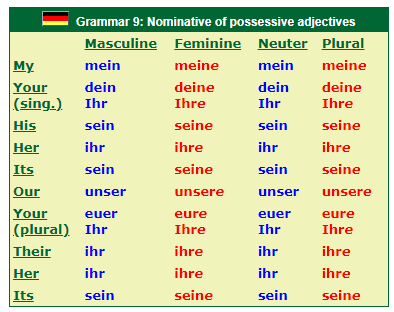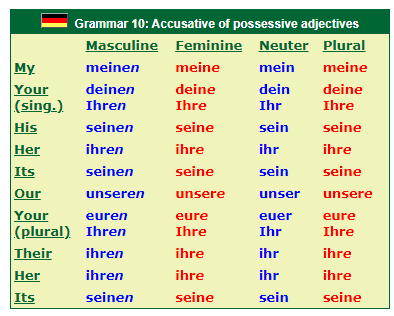3.7 Possessive adjectives
Possessive adjectives are those adjectives which refer to ownership, such as "your" and "his" in "What is your name?" or "What is his name?". We have already met some of them in the German equivalent of these questions "Wie ist Ihr Name?" or "Wie ist sein Name?". The full list of possessive adjectives is as follows:

once again, we find that the endings on all possessive adjectives change when they are in the accusative. We require a second table to explain these fully:

Grammatical points
1) Be very careful to distinguish between Ihr (= "your" (polite)) and ihr (= "their; her"). The capital letter is crucial here!
2) The spelling of the various forms of euer, which means "your" when you are addressing more than one person informally, can prove difficult. When an ending is added to "euer", the second "-e-" of the stem disappears.
 英语
英语 日语
日语 韩语
韩语 法语
法语 西班牙语
西班牙语 意大利语
意大利语 阿拉伯语
阿拉伯语 葡萄牙语
葡萄牙语 越南语
越南语 俄语
俄语 芬兰语
芬兰语 泰语
泰语 丹麦语
丹麦语 对外汉语
对外汉语

